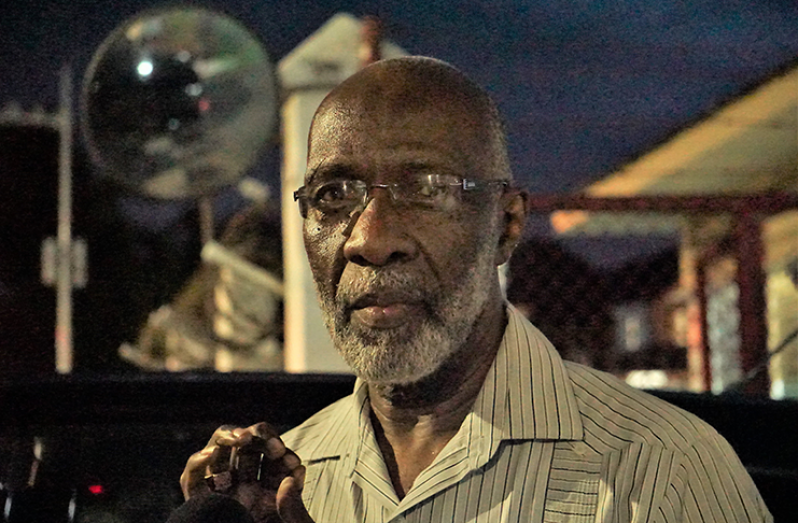By Lisa Hamilton
THE Guyana Elections Commission (GECOM) is reconsidering its decision to place persons who failed to collect their Identification (ID) Cards from the Commission’s offices on a separate Supplementary List on Elections Day.
According to Commissioner Vincent Alexander, the Commission now believes that this could cause some amount of confusion on Elections Day. “There is some review of that matter,” he said on Tuesday. “I’m not quite sure we’re settled on it being a Supplementary List. The view is expressed that a Supplementary List could be a source of confusion, because the electoral list is normally in alphabetical order, and what we find is that somebody goes to the list in the first instance, and then they have to go to another list in the second instance, and it could be an untidy arrangement, so it’s under review.”
The Commission’s previous position was that the names of the individuals who fail to collect their ID Cards within 21 days will be excluded from the Official List of Electors [OLE] and placed on a Supplementary List on Elections Day. These individuals would still be permitted to vote, should they turn up with other appropriate identification, and will remain on the National Register of Registrants Database (NRRD). No alternative options have been finalised for the Supplementary List as yet, but the Commission has committed to putting one in place.
Alexander said that all on the Commission agree that something must be done to bring those who fail to collect their IDs but turn up to vote on Elections Day under greater scrutiny.

“We’re also of the collective view that at the end of the day, there must be a mechanism that focuses on those persons on Election Day. In other words, some mechanism should be used; I don’t think we’re final on the mechanism to ensure that there is an alertness to the fact that here are a set of people who did not uplift their ID cards,” he said.
Meanwhile, the total number of ID Cards collected as of December 2, 2019 stands at 805, and the Commission has now decided to extend the period for upliftment beyond the initial 21-day deadline.
Commissioner Sase Gunraj said that he raised the issue at the Tuesday meeting that persons have had difficulties in contacting the Commission for the collection of their cards.
This 805 is out of over 18,000 who have not collected their ID Cards in several years for unconfirmed reasons.
He said that as far as he could remember, some of the highest numbers of collections came from Parika, Georgetown and Whim.
On a previous occasion, Alexander said that he is not surprised that this number is very low, as he had long suggested that a number of these people may either be deceased or overseas.
He explained that the concern is less about the failure to collect the ID Cards, and more about the failure of the persons in question to present themselves as existing.
Meanwhile, the Commission has made no new decisions with regards to the cross- matching of house-to-house or Claims and Objections (C&O) data.
Last Tuesday, it was revealed that the recent cross-matching report received from overseas is believed to be incorrect.
Gunraj had stated that the cross-matching information from the 370,000 transactions from the house-to-house registration showed that some 60,000 forms did not “attract a hit,” meaning that they were names apart from those on the NRRD.
The cross-matching was conducted by an international digital security company, Gemalto, and the decision taken to contact the service provider for clarity.
Alexander updated yesterday: “We’re still at the point where Gemalto is still doing cross-matching. This time they’re cross-matching the Claims and Objections against all of the information, and so it’s not until we have gotten back all of the cross-matching results that we’ll make a final decision.”
The Commission had expected to receive all of this information already, and is exploring other channels to fast-track its receipt of the data.
Also on the burner was the Commission’s need for funding. Alexander said that as far as he is aware, the Commission has sufficient funding for the holding of new General and Regional Elections come March 2, 2020.
He said that should the Commission require additional funding, nonetheless, there is still time to approach government for it.
Meanwhile, Commissioner Gunraj noted that the Commission also met with a delegation from the Carter Center and the United Nations Development Programme (UNDP).
The latter organization is interested in providing support areas critical to the conduct of elections, while the former would like to provide electoral observation.
Added to this, he confirmed that the European Union (EU) has also been accredited.



.jpg)








